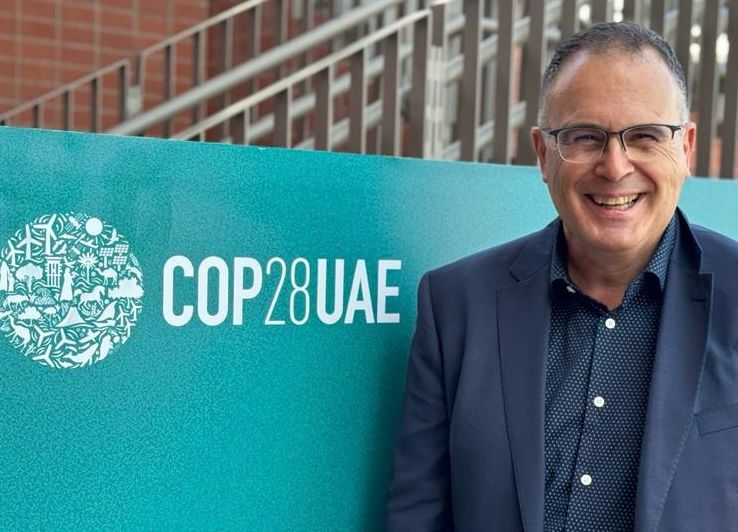
No-one is going to be entirely happy with the final statement agreed by nearly 200 countries at the COP28 climate summit. The gathering has agreed to “transition away” rather than “phase out” fossil fuel usage. It may sound like semantics, but the change of language is substantial as it allows for the continued exploitation of fossil fuels while actively seeking to speed up the race for sustainable alternatives. It’s a decent enough compromise, considering the powerful vested interests at play over nearly two weeks of talks in the oil-rich UAE.
The agreement, which is not legally binding, commits signatories to a less demanding pact from the one proposed at the start of the talks, which some delegates had hoped would lead to an elimination in the use of fossil fuels over time.
Instead, it sets the scene for a host of new global business opportunities – same based on the continued use of natural resources, which benefits established oil majors as well as countries like Namibia, which recently revealed the discovery of an estimated 11-billion barrel oil reserve off its coastline. It also creates the imperative for innovators to ramp up their efforts to deliver greener technologies.
Bankers I spoke to at the gathering at the Dubai expo centre last week suggested the focus of climate funding is likely to move toward mitigation measures such as carbon capture, which removes the climate-change-causing element from the atmosphere, as well as new innovations which will become viable long-term alternatives to fossil fuels.
“It has to be a whole of ecosystem approach, everyone needs to be involved to find solutions and working together to accelerate change, while ensuring the sustainability of economies,” said Annika Brouwer who is part of the sustainability team at London-based asset management firm NinetyOne.
The opportunities lie in two key areas, climate mitigation and adaption. The first will benefit firms that find new and better ways of developing future technologies to have less of an impact on the environment, and the other, accepting that the climate is changing, and humanity needs to develop a resilience to inevitable temperature and environmental changes. That means opportunity lies in everything from relocating vulnerable communities and infrastructure to higher ground, to the development drought and heat resistant hybrid crops as well as more efficient mechanisms for the production of clean energy and storage.
The event, held in Dubai in the oil-rich United Arab Emirates, courted controversy from the start, as Sultan Al Jaber, the oil executive who lead the summit, claimed there was “no science” to back the assertion that phasing out fossil fuels is necessary to keep global warming under the critical 1.5 degree temperature rise. Days later, Russian President Vladimir Putin landed in nearby Abu Dhabi, before visiting Saudi Arabia to discuss oil deals.
The US climate change envoy John Kerry played down the timing of the visit and said it would have no impact on the outcome of negotiations, even though the symbolism of the trip was evident to delegates.
“Everyone here should be pleased in a world of Ukraine and the Middle East and all of the other challenges of the planet, this is a moment where multilateralism has come together. That is hard,” Kerry said. “It is a document that reflects two years of work by all parties from every part of the globe… While nobody here will see their views completely reflected, the fact is that this document sends a very strong signal to the world. We have to adhere to keeping 1.5 in reach.”
Most western climate scientists however do not believe that the average global temperature rise will be restricted to 1.5 degrees and that opportunity has already passed. Even the most optimistic forecasters caution temperatures are likely to rise by twice that number by 2050, unless dramatic progress can be made in adapting everyday business practices. It will all depend on how industry chooses to adapt, and if it can as the COP28 agreement suggests: “…triple renewable energy capacity and double energy efficiency improvements by 2030.”
If the world is able to speedily “transition away from fossil fuels in energy systems,” as the document hopefully suggests it might, perhaps the doomsday scenarios can be avoided.



